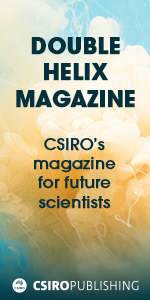
Animal Production Science
Volume 60 Number 17 2020
Genetically improved crop residues are gaining in demand among mixed crop–livestock farmers of developing countries for use as feed for enhancing ruminant animal production. Stover of newly developed brown midrib sorghum showed higher fermentability and utilisation potential than that of traditional cultivars. Sorghum with good quality and quantity of stover could be a practical choice of animal feeding in smallholder production systems.
AN19300Dietary nutrient restrictions in the post-weaning period change feed efficiency and productivity of Santa Inês ewe lambs
 , Marcos Cláudio Pinheiro Rogério
, Marcos Cláudio Pinheiro Rogério  , Francisco Gleyson da Silveira Alves
, Francisco Gleyson da Silveira Alves  , Luciana Freitas Guedes, Roberto Cláudio Fernandes Franco Pompeu
, Luciana Freitas Guedes, Roberto Cláudio Fernandes Franco Pompeu  , Alexandre Lima Ferreira
, Alexandre Lima Ferreira  , Ângela Maria de Vasconcelos, James Pierre Muir
, Ângela Maria de Vasconcelos, James Pierre Muir  and José Neuman Miranda Neiva
and José Neuman Miranda Neiva 
Sheep production is important for the production of animal protein; therefore, this work evaluated the effects of different nutritional plans and nutrient restrictions on the productive parameters of Santa Inês ewe lambs. The use of early carcass-finishing diets can be used as a recommendation of crude protein and total digestible nutrients at reductions of 15%; however, for the late-finishing plan, this recommendation is not applicable. This result will have a direct impact on reducing production costs and environmental impacts.
AN19671Performance of broilers and layers supplemented with Moringa stenopetala leaf meal under hot humid tropical conditions
 , Minyehun Getachew, Solomon Demeke, Waseyehun Hassen, Zemene Worku and Emily Burton
, Minyehun Getachew, Solomon Demeke, Waseyehun Hassen, Zemene Worku and Emily Burton
The goal of the present study was to identify the effect of Moringa stenopetala-leaf supplementation on the performance of broilers and layers under a climate of hot and humid tropical conditions. Moringa stenopetala-leaf supplementation did not alter meat and egg production. Layers supplemented with M. stenopetala leaf had more intense yolk colour. Yolk colour of layers raised under temperate climate could be improved by M. stenopetala-leaf supplementation.
AN19351Environmental enrichment strategies for nursery piglets and efficacy for maintaining interest
 , F. R. Caldara, A. V. Marcon, R. A. Martins, C. Crone, R. G. Garcia, I. C. L. A. Paz, V. M. O. S. Nieto, A. M. Odakura and J. M. Braz
, F. R. Caldara, A. V. Marcon, R. A. Martins, C. Crone, R. G. Garcia, I. C. L. A. Paz, V. M. O. S. Nieto, A. M. Odakura and J. M. Braz
Stress leading to undesirable behaviours in farmed animals can have adverse production outcomes. We tested various environmental enrichment strategies for their effects on piglet behaviour, maintenance of interest in the enrichment objects, and reflexes when faced with emotionally negative situations. Environmental enrichment improved the wellbeing of weaned piglets and their post-weaning fear reactions, and reduced undesirable behaviours.
The yak-based transhumant system is influenced by socioeconomic developments, regulations and environmental changes. Little is known about the impact of this on yak farming practices among different regions in Bhutan. We recommend providing special attention to formulate a clear wildlife carnivore–yak insurance program, to educate and train herders on good management practices, and to explore sustainable income based on yak farming.
AN19085Marketing, consumption and their determinants in village poultry production in four states of Ethiopia
In developing countries, village poultry production is an important source of food and income to households. Interventions on village poultry often focus on technologies, with limited consideration of the complex factors that drive decisions made by poultry-keepers. The present study identified that gender, household wealth, distance to market and training affect poultry marketing and consumption.
AN19248Can fenbendazole-medicated molasses blocks control Toxocara vitulorum in smallholder cattle and buffalo calves in developing countries? Studies from upland Lao PDR
 , S. Nampanya, T. S. Nemanic, N. Selwood, S. Khounsy, J. R. Young, P. C. Thomson, R. D. Bush and P. A. Windsor
, S. Nampanya, T. S. Nemanic, N. Selwood, S. Khounsy, J. R. Young, P. C. Thomson, R. D. Bush and P. A. Windsor
Uncontrolled toxocariasis contributes to the high rates of cattle and buffalo calf mortality in Laos, threatening efforts to establish food security and alleviate rural poverty. Designing parasite treatments appropriate for low-input traditional large ruminant systems may encourage sustainable adoption of parasite management and fenbendazole-medicated molasses blocks have shown great potential. In addition to assisting daily mustering, the therapeutic effects of the blocks against Toxocara vitulorum could improve agricultural productivity in the tropics.
AN19248 Abstract | AN19248 Full Text | AN19248PDF (346 KB) Open Access Article
AN19645Quality and fatty acid profile of milk of indigenous dairy goats fed from oasis resources in Tunisian arid areas
Inclusion of date-palm waste in animal feed is a traditional practice in oases, but its effect on the quality of animal products has rarely been studied. Its socioeconomic impact is significant, since it contributes to job creation through the sale of date-palm waste to livestock farmers, and it generates supplemental income valued by farmers.
Feed shortage is a critical problem for the livestock sector in Ethiopia; therefore, development and evaluation of alternative feed-supply systems that enhance feed supply are needed. The alternative feed supply systems should be combined with selective breeding and appropriate finishing strategy. Support of farmers by extension service and development agents is crucial to helping farmers adopt this alternative feed supply system.
Mislabelling of cage eggs as free-range eggs and vice versa has been documented, and has a significant impact on consumer trust and egg consumption. The objective of this study was to determine whether eggshell mineral composition could be used as a way to differentiate eggs originating from each production system. The findings showed a high variability in eggshell mineral composition within and between production systems; thus, analysis of eggshell mineral composition may not be an effective means of differentiating the origin of eggs.



